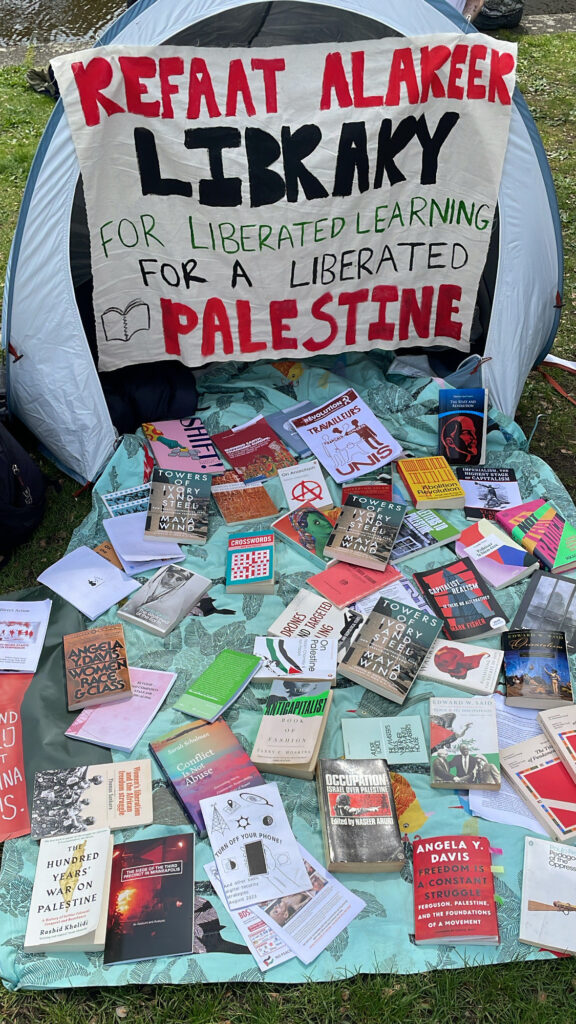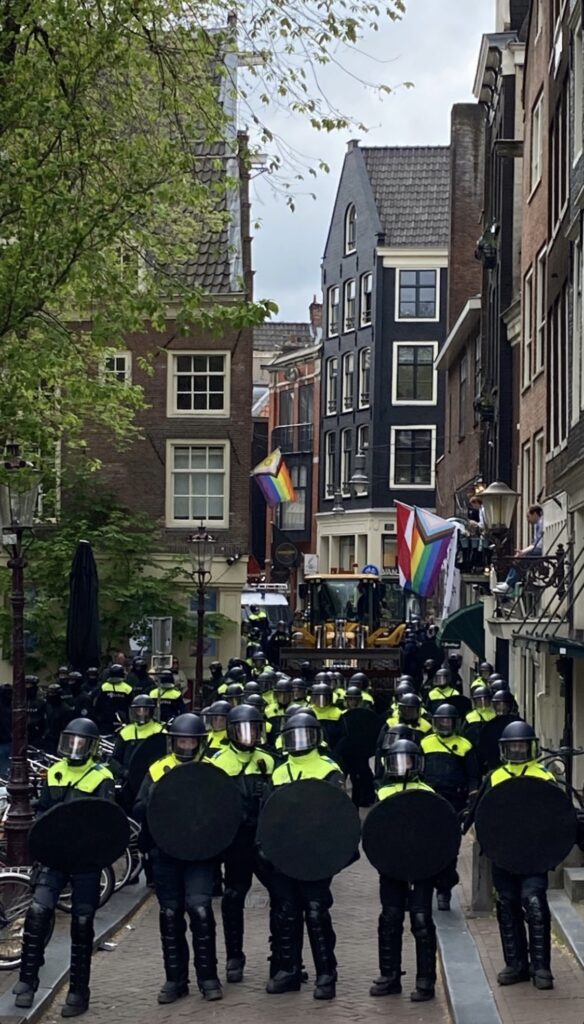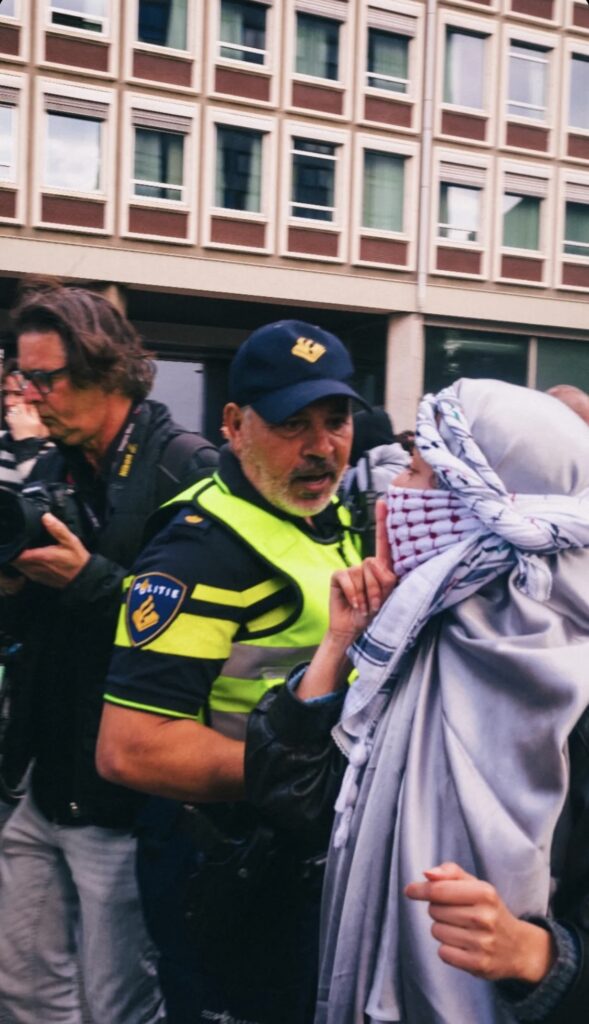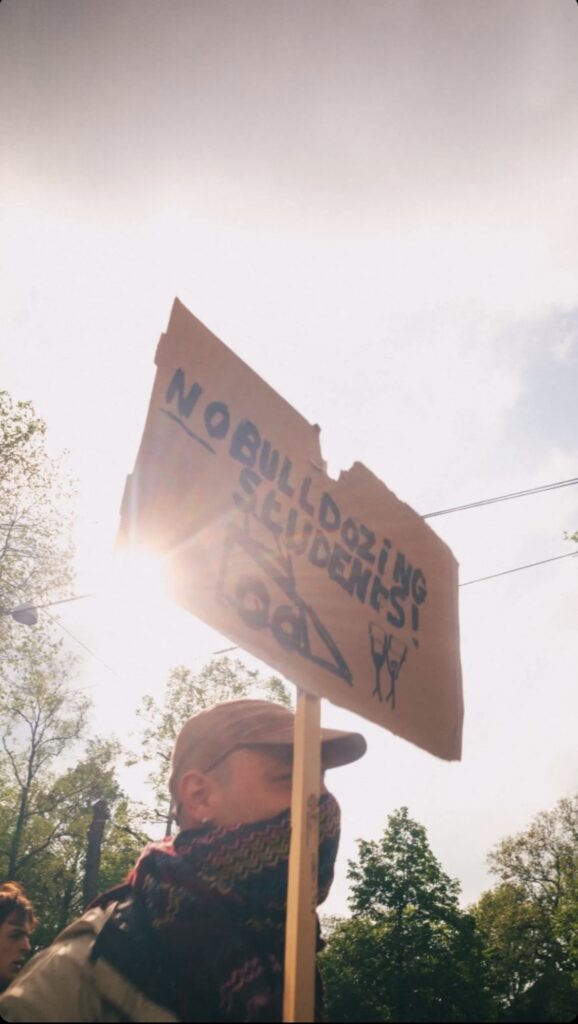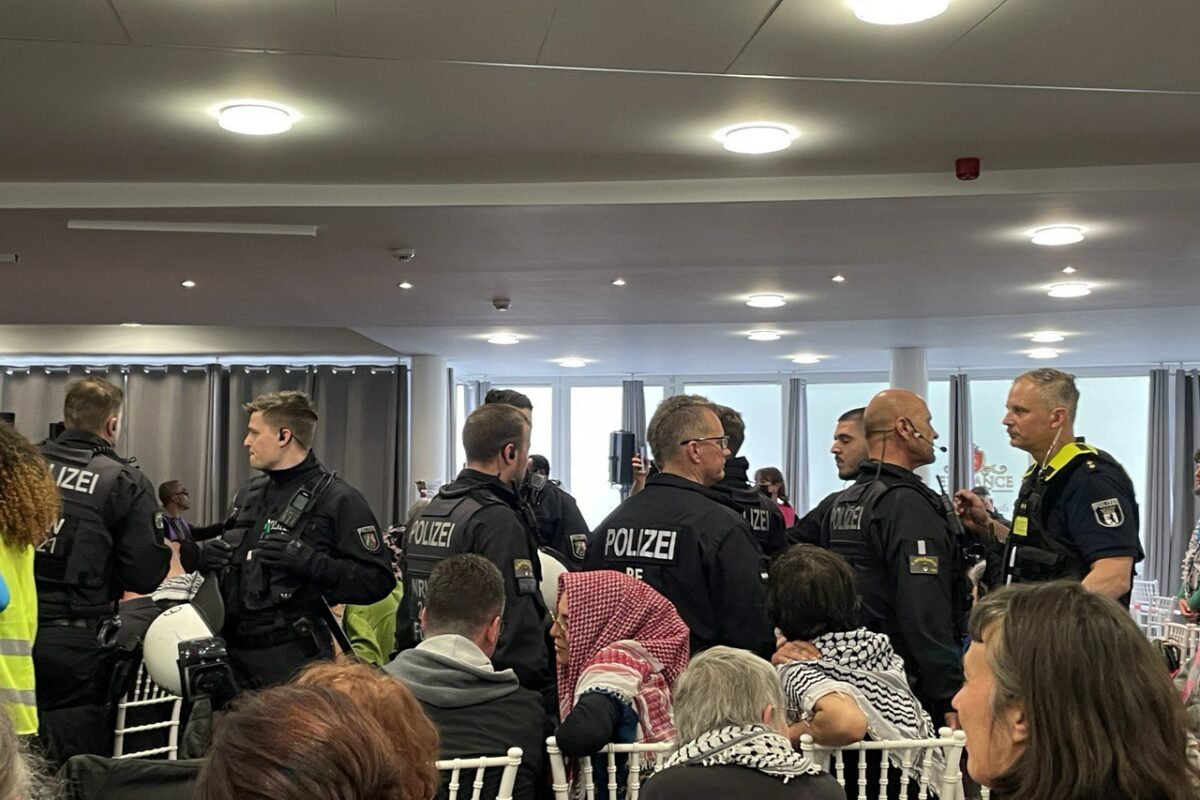This is a story about how a bookstore in Ukraine robbed itself. What’s remarkable is that the perpetrator turned out to be the store’s administration. No, they didn’t steal profits; they did something worse. I should mention that this text is written not only by a writer but also by a book thief who also acts as a judge. Let me explain.
An object is never just an object; it’s always something more. For example, in Ukraine, due to the minimum wage being 200 euros and the average wage being 400, buying an iPhone is considered a luxury. When purchasing a phone that costs several times more than a monthly salary, a person is buying not only a phone but also status. An old apartment in the city center makes the tenant an appreciator of history, while an apartment in a new building makes them a fan of modern solutions. Sellers actively speculate on this.
It’s obvious that owning expensive things doesn’t change your social class, but it allows you to appear as if you belong to a different one. The ability to create the illusion of change is also a change. Rest assured, this idea has found its embodiment even in the cost of your sneakers.
When I was a student, I dreamed of getting a job at a bookstore. And I did. I worked there for only one day. Why did I quit? The thing is, I always saw books as guides to intimate places. In the bookstore, books were just products.
I don’t have a dad. I grew up in a mining town. I’m gay. This combination was enough for me to try alcohol at 13. Several of my friends committed suicide. Some died from drug problems. All of this prompted me to quit drinking by 17 and find the strength to go to university to study literature. No, books have never been just books for me. They’re both a guide and a compass, and a lover. But never a product.
I don’t understand those who don’t read books because they’re expensive. If I really need something, I’ll find a way to get it by any means necessary. That’s why I’ve stolen books. The same audacity applies to my dates. Can you imagine the nightmare that would unfold if you hinted at sex to the wrong guy in a post-Soviet mining town? Yep, shoes were thrown at me. But the risk of getting into trouble only made my dates more precious.
When I was a teen and didn’t have enough money for wine, I would read Marina Tsvetaeva’s poems to the shopkeepers, and they would agree to give me a discount. I loved reading poetry while getting drunk. Poems shouldn’t live only in auditoriums and libraries. A good poem is like a hammer, that’s why you need to proudly swing it on the nighttime street.
Thanks to the books of Henry Miller and Jean Genet, I started approaching sex differently. Remember, an object is never just an object? The same goes for sex. It’s one thing to have sex with someone who’s solely focused on the physical movements, and it’s a completely different experience to do it with someone who allows you to transcend boundaries through it.
In my novel THE INTIMATE SMELL OF THE MARINE, there’s a scene where the characters engage in sex without moving. It’s a damn revealing moment, but because of the lack of movement, this scene wouldn’t translate well into porn. And therein lies the advantage of books. With words, you can describe what can’t be captured by a camera, which is why the best books will never be adapted. That’s why readers are often disappointed by adaptations of their favorite books, with rare exceptions.
Books. Books. Books. To me, this word is as important as ‘commission’ is to an estate agent. Remove books from my life, and what remains? It’s thanks to dozens of novels and hundreds of short stories that I’ve adjusted my perspective in such a way that I see each day as art. Turning your life into art is simple. All it takes is to follow one rule – understand yourself. A book is the fastest path to that, albeit a rather painful one.
I’ve never bought books instead of food, but I’ve often had to save on food to buy a book. I buy books at least twice a month. Even while living abroad, I travel to Lithuania and Poland to buy books in Russian there. Now I pay double, and even triple, the price for books, but I still continue to buy them because there’s nothing more valuable to me than a book. So, the news I heard today really pissed me off – a bookstore robbed itself.
THE INTIMATE SMELL OF THE MARINE describes two guys living in a former brothel. I actually lived in a former brothel in Kharkiv, Ukraine. Occasionally, I would hold readings of my manuscripts there. The brothel was in a rough area, so I would meet guests at the bookstore, and when everyone was gathered, we would walk together for another 20 minutes to get there.
This was the very same bookstore that robbed itself. My friend used to work there. Near the checkout, there was a coffee machine, and my friend would make me crappy coffee for free. It was in this store that I bought Hermann Hesse’s Steppenwolf – later, this book became one of my favorites. Now, the management of this store has announced a promotion. Bring Russian-language books there for recycling and get a free coffee.
Should I bring them Steppenwolf? This is the store where I bought the Russian translation. Ukrainian-speaking people in Kharkiv are as rare as multiple orgasms in women. I’ve been reading in Russian all my life. Moreover, I write in Russian. My passport is filled out in 2 languages: Russian and Ukrainian. But the war has brought aggressive nationalism, which now goes so far as to send books for recycling. Should I bring them my manuscripts? How should a Russian-speaking writer feel towards his country when his country treats his language and work like this?
Despite having lived in Ukraine all my life, my native language is not Ukrainian but Russian. My family speaks Russian. My friends speak Russian. When I have sex or dream, it all happens in Russian. But does that mean I support the war? Why should the war, which has torn me from a peaceful life, also take away my language?
If I were to change my native language, then why Ukrainian? Ukrainian culture is as foreign to half of Ukraine’s population as German or any other culture. But if it’s time to change culture, then I’d prefer not to adopt Ukrainian culture, but German. Friedrich Nietzsche has long been an intimate friend; maybe it’s time to make it official? Or should I become French? I’ve spent so many nights in bed with Jean-Paul Sartre’s books that a genetic test would surely reveal kinship.
At some point, the Ukrainian government decided that this war wasn’t a war of democracy against autocracy, but a war between Russians and Ukrainians. Therein lies the root of the problem. But this problem has a history. For all 30 years of Ukraine’s independence, Ukrainian politicians governed the country by dividing it along linguistic lines. While residents of western and eastern Ukraine quarreled with each other, corruption did its work. During the war, they decided to use the same principle.
At least once a week, I come across news of domestic crimes based on linguistic grounds. The bookstore in Kharkiv – one of the most Russian-speaking cities in Ukraine. I wouldn’t go in there now, not for free coffee, not even if they gifted me their coffee machine. Anyway, why bother thinking about it when there’s a chance they wouldn’t let me in at all? No, I don’t want to live in a country that suggests recycling the meaning of life.
The primary goal of any bookstore is to sell books, but what is the point of books? As a writer, I can say that one of the goals I set when writing a book is something like this – to create meaning. A bookstore that proposes to destroy books based on the language they are printed in undermines the construction of meaning, and therefore robs itself. That’s why I don’t consider Ukraine my home, or myself a Ukrainian. Today the country is full of hatred. Hatred spreads easily, and never stops after hitting one target.
Today, books are the newest target.
This piece is a part of a series, The Mining Boy Notes, published on Mondays and authored by Ilya Kharkow, a writer from Ukraine. For more information about Ilya, see his website. You can support his work by buying him a coffee.


